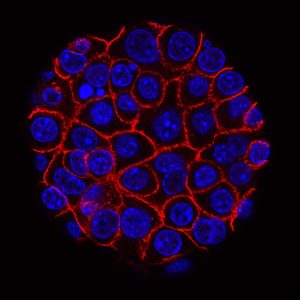
Daiichi Sankyo launches clotting drug Lixiana in UK
pharmafile | July 10, 2015 | News story | Medical Communications, Sales and Marketing | Daiichi Sankyo, Lixiana, NOAC, VTE, anticoagulant, atrial fibrillation, blood clots, edoxaban, novel anticoagulant, strokes, warfarin
Daiichi Sankyo’s Lixiana has become the latest pharma offering in the class of newer oral anticoagulants in the UK.
Lixiana (edoxaban) reduces the risk of blood clots in people with atrial fibrillation, which is thought to be the commonest heart rhythm disorder. It will also be used to protect patients from a recurrence if they have previously suffered from blood clots in the limbs and lungs, known as venous thromboembolism.
This class of blood-thinning drugs is the first group of new anticoagulants to come to the market in decades. They are used as an option to warfarin to prevent strokes in people with atrial fibrillation.
The heart rhythm irregularity caused by atrial fibrillation means blood clots are more likely to form in the heart, which can then travel to the brain, where they can cause a stroke. Patients with atrial fibrillation are five times more likely to suffer a stroke than those without the condition.
However Lixiana is relatively late to the UK market, where three blockbusters -Boehringer Ingelheim’s Pradaxa (dabigatran), Bayer’s Xarelto (rivaroxaban) and Pfizer and Bristol-Myers Squibb’s Eliquis (apixaban) are already licensed in multiple indications.
To support the launch of Lixiana Daiichi Sankyo funded a survey of 200 patients with atrial fibrillation. The survey indicated that a significant proportion of patients were not receiving adequate treatment to reduce their risk of a stroke.
Half of patients (50%) said they were not told different medications were available to reduce their risk of a stroke. NICE guidelines published in June 2014 recommend that aspirin should not be used on its own for stroke prevention in atrial fibrillation patients.
However the Daiichi survey found that more than half of patients (56.5%) were taking warfarin compared with around one in six (16.3%) who were taking of one of the newer anticoagulants.
Professor Gregory Lip, from the University of Birmingham, who has carried out studies on Lixiana says: “A few years ago, all we had to prevent strokes in atrial fibrillation patients was warfarin, which imposes many lifestyle restrictions on patients and needs monitoring with a blood test system known as INR. Now we are spoilt for choice with modern blood-thinning drugs that do not need INR monitoring and are easy for patients to live with.”
Dr Alexander Cohen, consultant vascular physician from Guy’s and St Thomas’ Hospitals and Kings College London who has also researched Lixiana, welcomed the additional resource to tackle the condition.
“Venous thromboembolism has a high rate of recurrence, which can be fatal. We need more tools to protect patients from a second incident and edoxaban will be of great use to help tailor treatments to specific patients.”
Yasmita Kumar
Related Content

FDA accepts BLA for AstraZeneca and Daiichi Sankyo’s datopotamab deruxtecan for breast cancer treatment
AstraZeneca and Daiichi Sankyo have announced that their Biologics License Application (BLA) for datopotamab deruxtecan …

EMA validates two applications for datopotamab deruxtecan for cancer treatments
AstraZeneca has announced that the European Medicines Agency (EMA) has validated to marketing authorisation applications …

Daiichi Sankyo shares results for Ezharmia as lymphoma treatment
Daiichi Sankyo has announced results from the phase 2 VALENTINE-PTCL01 trial of Ezharmia (valemetostat tosilate), …








